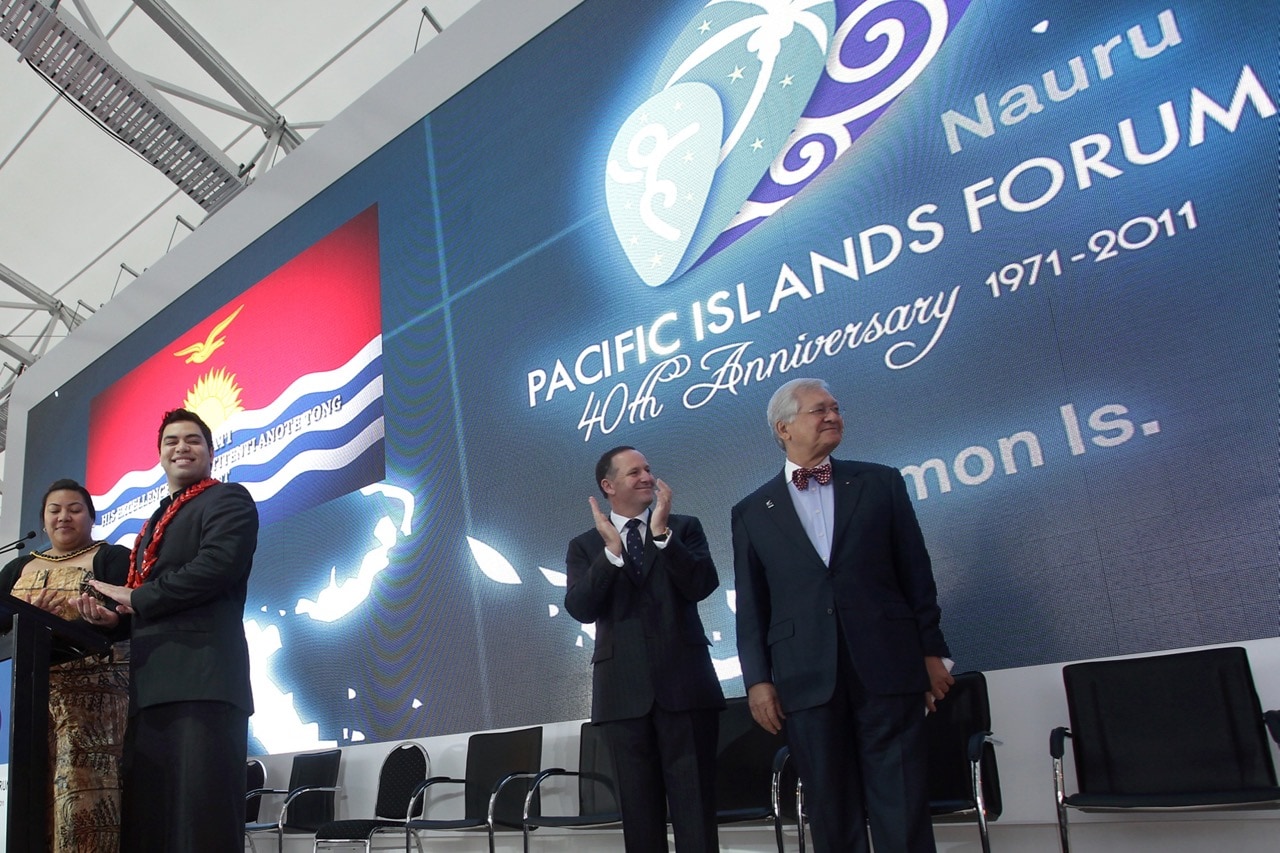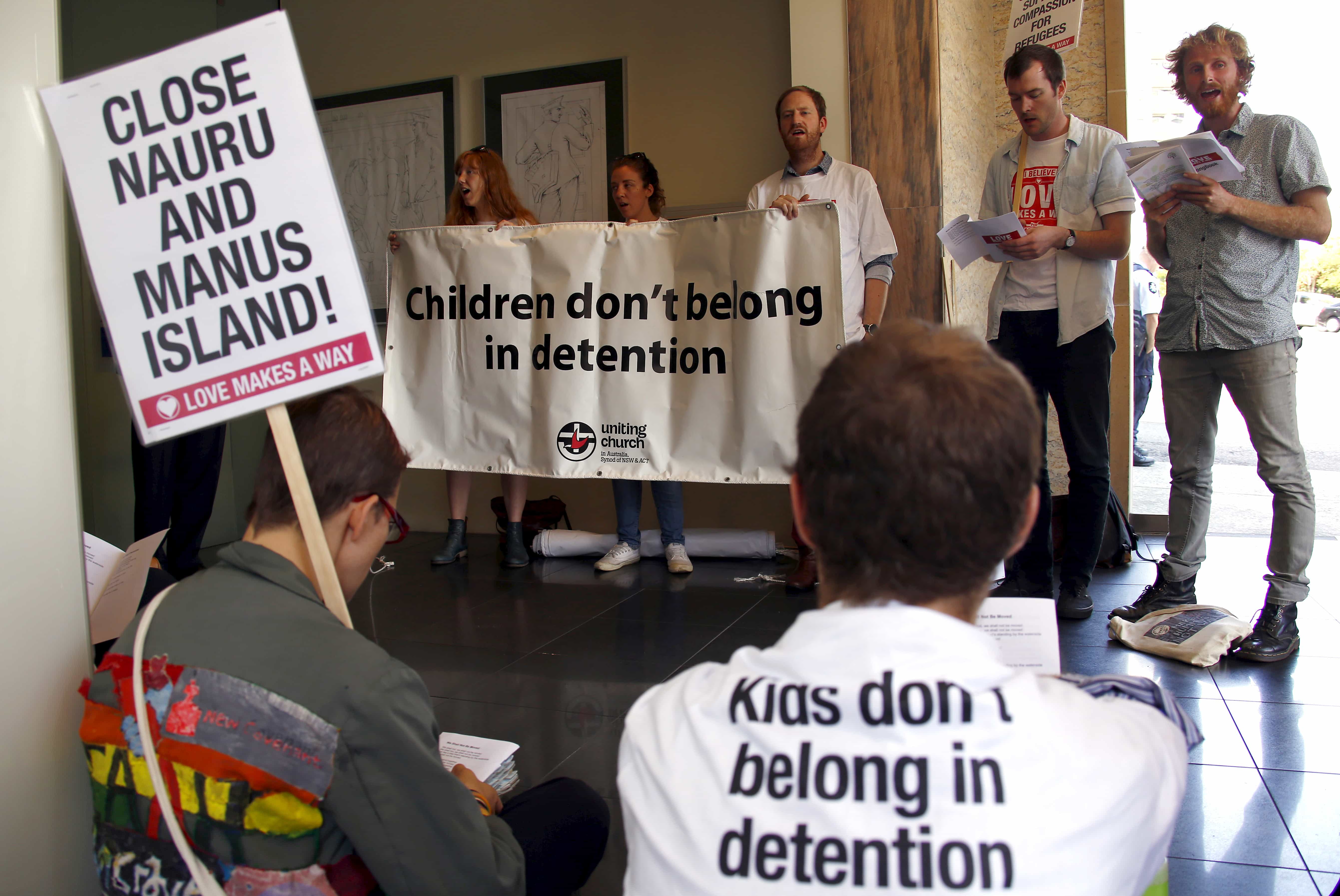(PINA/IFEX) – On 9 August 2001, PINA called on leaders of Pacific Islands Forum nations to take immediate action to ensure that recognised regional journalists are not stopped from covering Forum summits. PINA said that if the Forum leaders do not do this when they meet in the Central Pacific nation of Nauru next week, […]
(PINA/IFEX) – On 9 August 2001, PINA called on leaders of Pacific Islands Forum nations to take immediate action to ensure that recognised regional journalists are not stopped from covering Forum summits. PINA said that if the Forum leaders do not do this when they meet in the Central Pacific nation of Nauru next week, it will be hard to take anything else they say about good governance and transparency seriously. PINA President William Parkinson said Forum leaders and Forum Secretariat officials must address this issue. “It is time for action, not statements that sidestep the issue,” he said.
PINA was reacting to the Nauru government’s decision not to allow Agence-France Presse South Pacific correspondent Mike Field into Nauru to cover next week’s Forum summit. Field was also not allowed into Kiribati to cover last year’s Forum summit in its capital, Tarawa (see IFEX alerts of 10 October, 11 and 5 September 2000). The Forum is a regional organisation comprised of Australia, Cook Islands, Federated States of Micronesia, Fiji, Kiribati, New Zealand, Marshall Islands, Nauru, Niue, Papua New Guinea, Palau, Samoa, Solomon Islands, Tonga, Tuvalu and Vanuatu.
The Pacific news agency PINA Nius Online reported that Nauru’s ban on Field is under growing criticism. New Zealand Prime Minister Helen Clark stated that New Zealand would write to Nauru President Rene Harris registering its disapproval. Clark was quoted as saying: “I don’t know how far back the practice reaches but certainly last year it was a problem, this year it’s a problem. A letter was sent last year, a letter will go this year, something will be said.”
PINA Nius Online also reported that the French media freedom organisation Reporters sans frontières (RSF) wrote to Nauru’s president, urging him to reconsider this decision. “Banning access to a country by a foreign journalist is a serious press freedom violation,” underlined RSF Secretary-General Robert Ménard.
PINA Nius Online also quoted Forum Secretariat media adviser Ulafala Aiavao as saying, from Yaren in Nauru, where officials are preparing for the 16 to 18 August summit: “Immigration matters are handled by countries, not regional organisations: the latter are not in a position to impose or reverse immigration decisions on sovereign states. Nauru is not required to explain immigration decisions to regional organisations such as the Forum or anyone else. They can if they want to, although it appears the communication was sent directly to the person concerned.”
PINA Nius Online quoted Field as saying the ban by the Nauruans was because of his coverage of Nauru’s tax haven and alleged Russian mafia money laundering operations through it. Field said that at last year’s Forum in Kiribati, Clark had called for democratic and open government in the Pacific. “At the very next test they exclude one of the journalists who actually makes a career of covering Nauru and the Pacific,” he said. Field said many governments in the region only paid lip service to democracy. “Their response is to shut up shop and avoid having to answer questions,” he said.
Field, a New Zealander, has covered the Pacific since 1975. He has lived in Samoa and is now Auckland-based. “There’s no other journalist, in fact no leader, that’s been to more forums than me,” he was quoted by the New Zealand Press Association (NZPA) as saying.
Background Information
Kiribati, which neighbours Nauru, imposed an “Unwanted Immigrant” order on Field in 1999 (see IFEX alert of 29 November 1999). Rikiaua Takeke of the Office of the Beretitenti (president), said Field was “responsible for writing unfair, untrue, and derogative stories about Kiribati and the Kiribati people. The ban is also made for his own security since many locals may attempt violence against him while in Kiribati.”
Kiribati authorities were angered by Field’s reports on the country’s development problems, including the environment on the heavily populated main atoll of Tarawa. Field had also reported on problems confronted by a group trying to establish Kiribati’s first independent commercial radio station (see IFEX alerts of 9 May 2000, 9 December and 21 September 1999) and the presence of a Chinese satellite tracking station in Kiribati.


